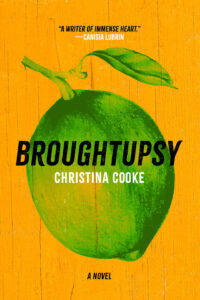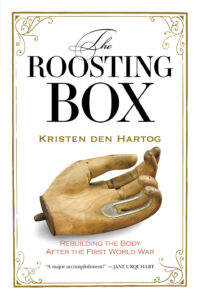March 6, 2024
Gleanings

- We don’t want to do only the smallest things, but we shouldn’t write them off either. They are not enough, but they are not unworthy. We know that every fraction of a degree, every healthier ecosystem matters. And with a runaway crisis that is so massive and sprawling, feeling like you can contribute, even in the smallest way, is a kind of clean-burning fuel.
- Joy and wonder. That’s the part that feels unchanged, or when lost, can be recovered. It’s the entering the kingdom like a child. Being four or maybe five or six, the wonder of hearing exquisite music come out of a huge tape player above my head on the table. The wonder of fields and hills we played in, the wonder of “swimming” in a foot of creek water, the wonder of those letters on a page that make up words and can be read, the wonder of God is love.
- “Just be yourself” isn’t advice you can market, and it won’t make much profit. But the truth is, that’s all there is. All we have is our own imperfect selves standing in front of our own imperfect children and admitting that we don’t have a fucking clue, either, but promising them that we’ll figure it out together.
- There are so many alongsides when you are in your mid-40s. It’s special to peel back all the layers for a couple of days and lay down alone in a bed and marvel at it all, admitting that it’s more than you ever could have imagined and sometimes too much and also, always, filthy rich with meaning.
- I’ve been adding blogs to my browser bookmarks, seeking out people who are still using old school WordPress and the like to document their days. Lots of people are still doing it in a no-frills and gentle journal-y way and I love them for it. Most of them are new to me and they’re really inspiring me to just write about the everyday here and stop overthinking the whole blog thing. Like we used to. Who cares if blogging is not really what most people do anymore? I still love it.
- The heart must feel reprieve from time to time, otherwise it might just explode.
- Yes, grocery store tomatoes: If you, like me, buy cherry or grape tomatoes far more often than you use them up, this soup is for you
- And in almost every other case? no, not really, I don’t trust myself. I’m certain about almost nothing. And I wonder if there is a root that I can follow down into this one somewhere. Do other people have this problem?
- Blogging, when it happens, fits into the in-between times. Like this post, written almost entirely on a Friday afternoon, sitting overlooking an indoor soccer field, feet up, travel mug of tea nearby, and my laptop open; but finished the following afternoon, because the previous sentence is where my writing stopped, when I turned to chat with a parent—a dad who was open to talking soccer with a woman, which is not, I must tell you, always the case. So I relished the opening, and went with it.
- It began, as many of my habits did, in East Wawanosh, where I was the only kid on the 10th concession whose TV-less status meant I couldn’t watch Saturday morning cartoons or Sesame Street. Instead, I had opinions about CBC Radio’s annoying “Fresh Air” hosts and I could hum the theme to Peter Gzowski’s “This Country in the Morning,” the program that held the coveted weekday morning spot where we now hear Q with Tom Power.
- Today we’re going by train to a village south of Porto, on the sea, to eat fish for lunch, watch birds in the palms. I finished reading Tom Lake earlier, with my coffee, and am filled with the sense that stories never end.
- I think putting painful memories away in a drawer we never open again does not deal with them. I think that poetry often involves a search for meaning. Perhaps it is the teacher in me that wants to keep learning from all my life experiences—bad and good.
March 5, 2024
Broughtupsy, by Christina Cooke
It’s dizzyingly (dazzlingly) disorienting, the narrative of Christina Cooke’s debut novel Broughtupsy, and that’s by design, for it’s protagonist, Akúa, is racked with raw unprocessed grief after the death of her younger brother and the end of her relationship. Never mind that she’s been trying to outrun grief and gathering losses since the death of her mother years before, after which their father moved the family from their home in Kingston, Jamaica, to Texas, and then Vancouver, Akúa’s older sister, Tamika, refusing to come along for the ride. Akúa, only twenty, is so old and so young at once, essential parts of her stopped at the point where her mother died and her family fell apart. She’s not thinking clearly, her choices are impulsive. She’s decided to take out a student line of credit and bring her brother’s ashes back to Jamaica, to face her fierce older sister for the first time in ten years, both sisters bringing so many grievances and resentments that it’s impossible to connect. But the kinetic vibe of Kingston’s streets turn out to be a useful counter to Akúa’s grief and numbness, and Tamika’s own volatility has a similar effect, however complicated. It’s not healthy, but Akúa doesn’t want healthy, instead she desires to push her luck and flirt with danger, indulging herself with sensory experiences, reminders of who she used to be, the fact that she’s alive.
She meets Jayda, a stripper, and can’t help but be drawn to her, to her world, a world so far away from the staunchly devout Tamika and her judgments of Akúa’s sexuality, her relationship with a woman. Tamika insisting this judgment is not simply morality, but also practicality, because it’s different for a gay woman in Jamaica, it’s dangerous… But what does Akúa really have to lose?
The novel entire is the answer to that question, and it’s ending is powerful, moving, and so satisfying cathartic.
March 4, 2024
Bookspo Episode One
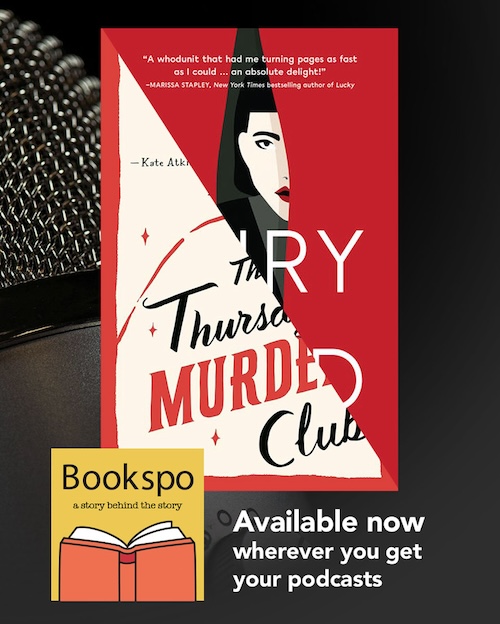
It’s here! Listen to my conversation with Kate Hilton and Elizabeth Renzetti at Apple Podcasts or on Substack.
March 3, 2024
Coming Soon…
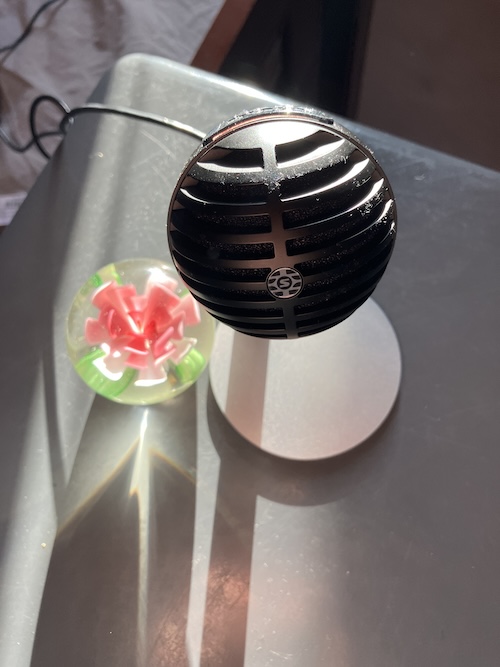
My new podcast drops tomorrow. Creating this project has been one of the most satisfying things I’ve ever done, and it’s been a strange and funny way to try to recover from a period of crippling self-consciousness. Strange and funny because listening to yourself really does make clear what a fucking idiot you truly are sometimes. Oh, but you get to EDIT. Imagine if you could do that always, especially to the conversations that wake you up at four in the morning in abject horror. And you also get to LEARN. I’ve learned so much, about listening, and asking questions, and my own weird tics (like whenever I ask a question, I freak out and then re-articulate/re-frame the question again because I’m scared of just handing it off and letting the person I’m speaking with ANSWER….) I’m proud of so many things about this show, but one that I can take almost no credit for is how it’s also a spectacular showcase of some of the best books of Spring 2024. When I came up with my list of people to interview, I hadn’t even read most of the books yet, but they turned out to all be so wonderful, rich, and interesting in their own particular ways. Rom-coms, literary fiction, popculture nonfiction, mysteries, thrillers, philosophical meditations on art, memoir, commercial fiction, and more, proving that bookishness knows no bounds in terms of genre. Ooooh, I am so excited to share it all with you!
February 29, 2024
My February Substack Essay
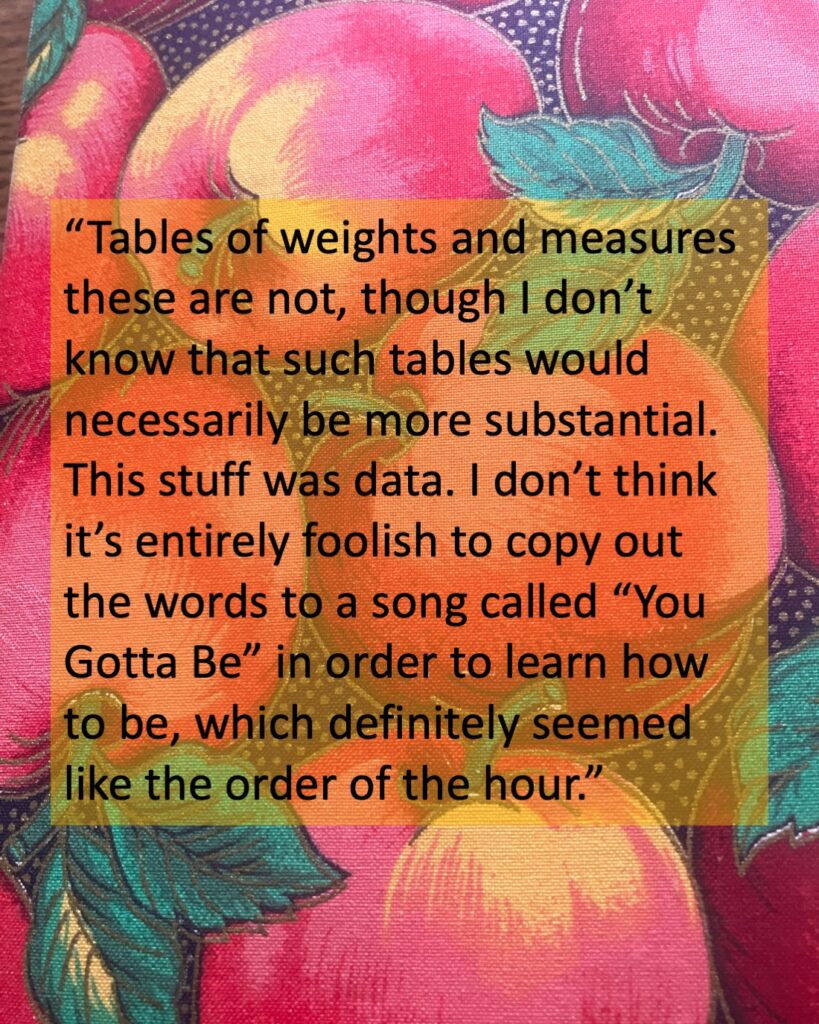
As you know already, if you’ve been following along, I’ve set myself a challenge of writing a long-form essay every month this year. The second one went live this morning and I am really proud of it—“In Praise of Pieces: Commonplace Books, Friendship Quotes, and Our Bookless Book Club.” I’m posting these essays on Substack, because the opportunity to monetize my writing is something I want to explore, because I want to try something new, and also because Substack offers podcast hosting (the teaser for my new podcast came out yesterday!).
It’s funny though because Substack is working very hard to embrace elements of social media platforms (they just introduced direct messaging, their “notes” is like a hybrid of Twitter and Facebook) and I’m just not interested in any of it. As always, I keep coming back to my blog, to the opportunity to be read in semi-obscurity. And I appreciate the readers who show up here so much.
My first three Substack essays will be available for everyone to read, but thereafter (beginning in April) will be for paid subscribers only. To show my gratitude to the readers who show up for me here, I’d like to give away paid subscriptions to the first three people who get in touch to claim them. Drop me an email at klclare AT gmail DOT com! (I’ll put a note here when they’re gone.)
February 28, 2024
Leaps
There is reference to an act of suicide in this post, which might not be okay for you right now. Please take care. And no, it’s not mine, Mom. I am fine 😉
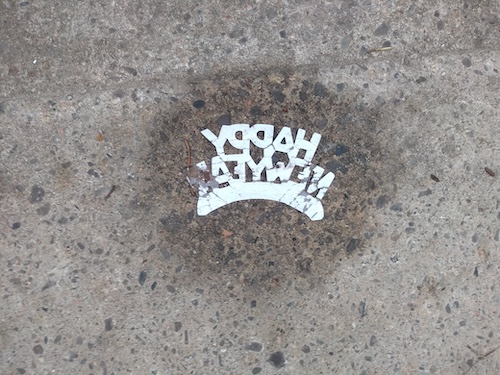
I like the idea of leap years, a bonus day, even if it happens to fall in February, 24 hours out of nothing with which I am welcome to use however I like (probably reading). But then the last time we had a leap year was, um, erm, 4 years ago, which was THAT YEAR, and I’ve always been a little bit superstitious, but THAT YEAR wrecked me (and everyone), and navigating the p.t.s.d. from that experience will likely be the project of the rest of my life.
What I’m trying to say is that I’ve been wanting to read this book called End Times, which has been sitting on my shelf for a while, but I haven’t, because in February 2020, I read a book from the same publisher called The Towers of Babylon that had some “end times” apocalyptic vibes, and I’m worried that if a pattern emerges, I might trigger disaster all over again. Sounds normal, right?
Two years later, I’d be (nearly literally?) out of my mind after a lifetime in pandemic years, the chaos of the trucker convoys, and the onslaught of invasion in Ukraine, and I remember eating dinner in a pizza restaurant as the TV news reported attacks on Ukrainian nuclear reactors, and I was so deeply entrenched in the catastrophic thinking that nearly wrecked me and convinced that we were all going to die, imminently, and I didn’t understand how everyone was acting normal. This was around the same time that I was waiting at a red light on Bathurst Street when something crashed down from a tall building under construction, and it wasn’t until long after I’d driven through those lights, until a few days later when I was reading the news, that I learned it had been a person who’d fallen to the street that day. Who’d jumped. Who’d leapt.
I feel like February is a rutted driveway, and I keep returning to those same tire tracks, noting the different designs of the treads, the shapes and patterns they make.
It was around this time of year, 11 years ago, that a very large cyst emerged in my thyroid, when I was seven months pregnant with my youngest child. And while I was far less practised in catastrophic thinking at that point, I’m still me, so I went straight there, to the small percentage of thyroid lumps that turn out to be malignant, and the tiny percentage of those malignant lumps that turn out to be fatal, which was a devastating diagnosis to receive from myself, obviously. But it turns out that I’m not even a doctor, and that sometimes weird and disturbing things can happen that don’t necessarily lead to the end of the world, which has been an important education for me. I really had no idea.
But even still! The magical thinking. I went for my annual thyroid check last week, and my thyroid is forever in flux, some lumps growing smaller, new ones emerging, which is not actually so rare for thyroids, and all of this change beneath the surface that I’d not even be aware of had that cyst not flared up all those years ago, placing me under watch. And my tests were all fine, once again, and I knew they’d be fine, that they’d probably be fine, but I felt even to say so might be a trick, lulling me into complacency. It’s just when give up on your guard that they get you, so my ever present anxiety whispers in my ear.
Deadly viruses. Fascism. Bodies falling from the sky. Lumps beneath the surface. The creative leaps my mind makes to suppose I might have control over any of this, over the universe at all. That the patterns are even there, signs and omens. I still can’t believe I wrote a blog post on February 21, 2020 about how, after five years of anxiety, I was finally learning how to be calm. Naturally, I am still not convinced that my blog post didn’t start the pandemic, in conjunction with that Babylon book, never mind that Covid-19 (which the blog post doesn’t even mention among all the other things I was worried about four years ago, and what if the problem was that I’d failed to watch out for it!?) had been circulating for months by then. But then the whole point of this is my inability to accept that the world exists outside of my mind.
February 26, 2024
Reading and Writing
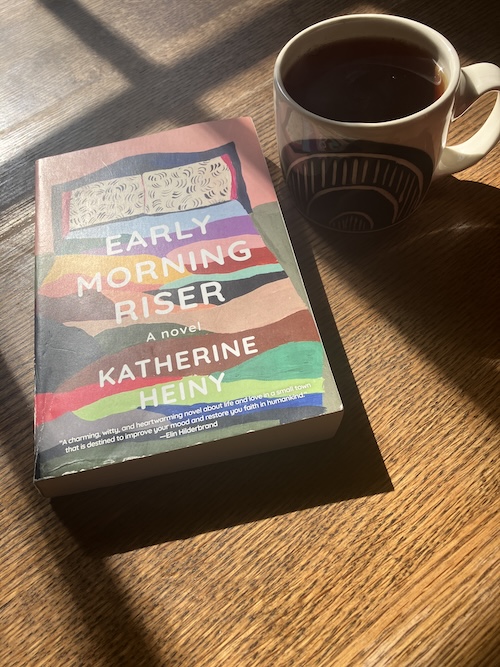
If you receive my newsletter (February edition went out last week!), then you already know that I’ve had a rich and fulfilling month in terms of reading and writing, and creating. And if you don’t receive my newsletter, well, you’re now officially up to date, since you’re already here on my blog and my newsletter is a digested version of my blog posts and book reviews anyway. EXCEPT for my new creative project of writing a long form essay every month, of course. (Last month’s was about the delights of rereading Danielle Steele—have you read it yet?) I have taken exquisite pleasure in writing these pieces, and my next one will be arriving in inboxes on THURSDAY. It’s called “In Praise of Pieces: Commonplace Books, Friendship Quotes, and Our Bookless Book Club” and I’m really excited to share it with you. As with last month’s essay, and like next month’s, these essays will be available for all subscribers, and thereafter for paid subscribers only. As I wrote in my newsletter, “I entered into this enterprise with the lowest expectations, with the intention of finding a different way to be online and channelling my thoughts and ideas into long-form projects whose composition seemed like it might help to further mend my brain after more than a decade of fragmentation on social media. And let me tell you, it has felt so good to write these longer pieces, so rich and satisfying. And it has felt even better to have so many of you become paid subscribers to receive these pieces.” Thanks to everybody who has read, shared, or supported. Challenging myself in this way has been so satisfying. It has also meant that I got to spend part of last week rereading Katherine Heiny’s EARLY MORNING RISER, because my March essay is going to be all about her work and what it means to me.
If you’re not on my newsletter list yet, you can sign up here.
February 22, 2024
Gleanings

- But I also see where this urgency can lead us—myself included—to run roughshod over our own relationships, turning people we love into targets of our wrath.
- This wasn’t one of the better times in my life. That’s not Dar Williams’ fault, but regardless the emotional ups and downs of my final years in that university town came to have Mortal City as their soundtrack.
- I have not been to hell and back/ But maybe that’s not true.
- Socially, I was lukewarm: being known as the 15 year old who square danced with her parents was not likely to turn the temperature down to cool where I longed to be. (Becoming hot was never in the cards).
- A thing I like to do in the car: say “How dare you” out loud with different intonations and degrees of vehemence. My life is not dramatic enough to necessitate saying it for real, but I want to be ready.
- I am always taken aback by the metaphysics of time and place. That you think of someone perhaps returning from a run along Mill Creek in Edmonton or skating with his children and he is thinking about dinner in the 5th in Paris.
- In these stories we find the extraordinary and the appalling happening all over the place, quite unremarked upon. The casual transfiguration of women into birds, of phantoms into songs. The unflinching brutality of murder and death. The inconsistency of time and geography, which can trap you or hasten you along. Not only airships, but wind that has a voice.
- It’s high summer in Melbourne and the city is absolutely effervescing with the excitement of Taylor Swift being in town.
- I’ve brushed my girl’s hair a thousand times. And braided it just as many. High pony. Low pony. Bows. Barrettes. Headbands with flowers as big as dinner plates. Ballerina bun. Top knot. Backcombed witch’s mane. Lice. Thrice. Graduation. First party. And then today, for the first time ever, Iole did my hair.
- Because here’s the thing about telling stories. We don’t need to know, or understand, or locate meaning. We just need to be open to receive, to see, to listen, to translate, transcribe, hunt down, search out, borrow, collect, connect, tell.
February 21, 2024
The Roosting Box: Rebuilding the Body After the First World War, by Kristen den Hartog
Whoever you are, I can likely promise you that The Roosting Box, by Kirsten den Hartog, is not like any book you’ve read before. den Hartog is an award-winning novelist, co-author of two other books of historical nonfiction, and her approach to history in this latest offering is lyrical (lines in italics throughout the book which are embedded in her own prose are actually borrowed from poets who died in World War One, figures she sees as ghosts who haunt the text), whimsical (“In a way it was a magical time,” the book begins, “given that magic can be dark or bright or both at once. Men by the thousands travelled up into the clouds in flying machines. Submarines lurked below the surface of the water and the men inside fired torpedoes at the enemy just like toys come to life. Little figurines full of wishes and nightmares.”) with the most prosaic setting possible (a former cash register factory beside the railway tracks, not far from the tannery with a view from the roof of the Ford Motor Company) that turns out to be the springboard for so many true stories, some heartening, most harrowing, making clear the enormity and inhumanity of what people and other creatures are forced to survive (and/or perish by) in war.
But then den Hartog has a better metaphor (this is why she wrote this book, and I didn’t)—not a springboard, but a roosting box, “a communal space that provides ideal but temporary shelter for [the] vulnerable.” That space is the National Cash Register Factory in Toronto, which by 1918 was converted into the Dominion Orthopaedic Hospital, and would become the Christie Street Veterans Hospital. The book is not a history of the hospital itself per se (though it’s loosely structured around its opening and ends with its replacement by Sunnybrook Hospital in the 1940s, as a new generation of wounded soldiers came home from another war), but instead a collection of stories about the lives of people who graced its halls, patients, doctors, nurses, and more—dietitians and occupational therapists (both new professions for women that emerged at this time), artists and sculptors involved in facial reconstruction, no less than Frederick Banting, whose studies were tested on diabetic patients at Christie Street. “So while the hospital is at the centre of this book, the story travels off from that point in many directions—to battlefields, to small hometowns in Canada and abroad, into makeshift hospitals on the frontlines, and across the ocean on warships. It moves backward and forward in time, always returning to the place (and the concept) of healing.”
War does the most horrifying things to people’s minds and people’s bodies, which den Hartog makes clear in all these stories. She writes about field hospitals and medical boats coming under attack—justifications that the former was build too close to strategic targets and that the latter’s conspicuous red cross was a trick. The images are indelible of nurses’ bodies resurfacing in the water long after, their long blue dresses, and huge white veils. Did you know what being buried alive, even temporarily, does to a person’s digestive tract, let alone their psyche? She writes about the 1918 Influenza Pandemic sweeping the world, aided by the wartime necessity of people in such tight quarters, and how it took down the vulnerable patients at the Christie Street Hospital. Including Indigenous patients, many of whom served as essential snipers at the war front, but would come home again to be denied veteran’s benefits. Patients left mentally shattered by war were also scarcely supported after the fact, it being supposed that anything otherwise would be coddling. The week before the Christie Street Hospital opened, Toronto’s artificial limb workers went on strike, demanding that the industry be helmed by a returned soldier instead of a government bureaucrat. There was an artificial limb industry? I’d had no idea—I was born 60 years after armistice and until reading The Roosting Box, I’d never properly understood how huge the wounded population would have been at the time. I knew that the War Amps nonprofit was a thing, but I’d never thought about why. (Also, the prosthetics weren’t great. Even now, prosthetics can be painful, cumbersome and very expensive, but a century ago, it was sometimes easier to go without.)
A warning: once you pick up this book, you will likely annoy everyone around you by spouting fascinating facts out of context, like a bothersome robot, but pick it up anyway. In The Roosting Box, Kristen den Hartog has brought a piece of Toronto’s history to life, and the effect is pretty dazzling.
February 20, 2024
SUNSHINE
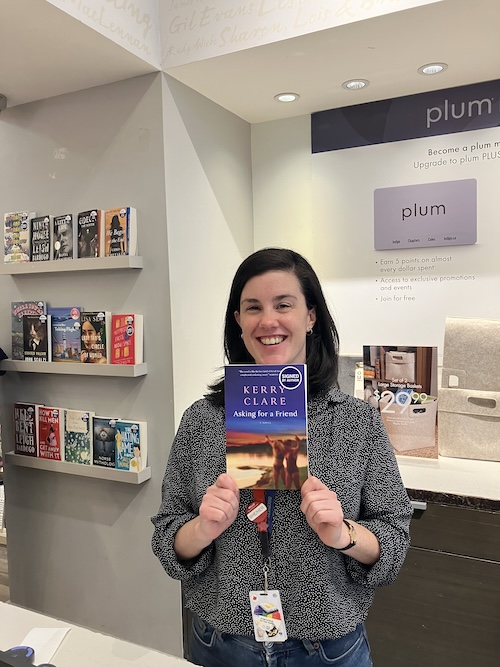
Once a year, I get stabbed in the neck for a needle biopsy at Mt. Sinai Hospital, and then reward myself with some new book purchases at the Indigo Spirit bookstore downstairs. They also had ASKING FOR A FRIEND in stock, and so I was bringing that copy to the cash with the books I was buying, and Radiant Human/Expert Bookseller Lisa spied my book’s cover on the top of my stack. “OH MY GOD, KERRY CLARE!,” she exclaimed, which I just think is absolutely the best way to overhear people talking about you when they think you’re not present. I probably should have pleaded ignorant, and said, “Oh, hey, rave a little more about this author, why don’t you,” but instead I told her that this was my book, and I wanted to sign it, and she was super excited because she’d been the one to order my book—as well as the Claire Keegan short story collection I was buying, and so she is CLEARLY a woman of exquisite literary taste. It was truly the nicest bookstore encounter, and turned my day—which began with box breathing on the subway and a neck biopsy—into SUNSHINE. She is very very excited to hear when my next book is coming out. LISA!! What a gem.
